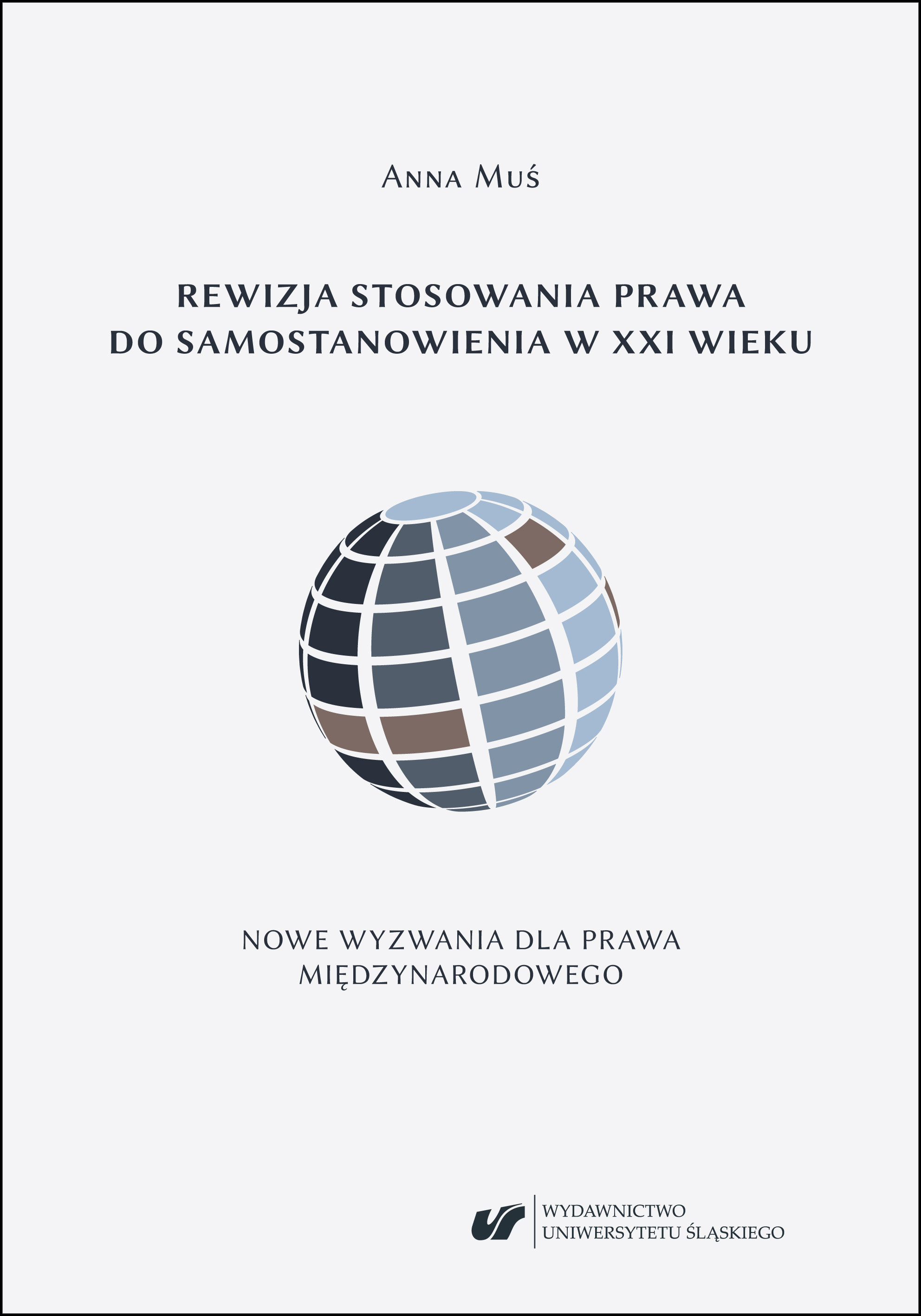Rewizja stosowania prawa do samostanowienia w XXI wieku. Nowe wyzwania dla prawa międzynarodowego
The research on the exercise of the right to self-determination in the 21st century. New challenges to international law
Author(s): Anna Muś
Subject(s): Law, Constitution, Jurisprudence
Published by: Wydawnictwo Uniwersytetu Śląskiego
Summary/Abstract: From the perspective of the historical development of international law, the right to selfdetermination acquired the status of a legal norm relatively recently, i.e. in the United Nations Charter of 26 June 1945. From that moment, its recognition and interpretation has been undergoing a dynamic evolution. Despite the fact that this law has been respected in the case of the emergence of many states, and that there are still many movements acknowledging the right to claiming the right to self-determination, the practice of its interpretation remains inconsistent. This work analyses the most important aspects of the right to self-determination: it defines its subjective and objective scope, its legal character, and points to various examples of its exercising that illustrate the existing practice in this matter. What creates the greatest difficulty is determining the following: which communities are authorised by law to claim the right to self-determination, and who has the right (obligation) to recognise their claims. The combination of the issue of subjectivity and the right to selfdetermination is aimed at finding possible solutions to the aforementioned problems. In order to complete this task, it is necessary, first of all, to determine what features must characterise an entity that call upon the right to self-determination and how (through which methods) the claim should be investigated, and eventually accepted. The essence of legal and international subjectivity is paramount for this matter. What is characteristic of the problems addressed in this work is, above all, the diversity of interpretation, the heterogeneity of practice, and a high impact of politics and each and every subsequent international relations on obeying law. In addition, the problem of self-determination and the rights of communities other than states still remains a current problem (and is even becoming more serious), especially due to the fact that the treatment of law by some states is subjective. Therefore, in this case a significant role is provided by the science of international law, which should take up an impartial stance on the matter, that is neutral towards these controversies, and propose some solutions. This work has been aimed at the identification of certain trends that emerged during the 71 years of the exercising of the right to self-determination. The sources on which the considerations were based are, first of all, treaties and other documents of general law, i.e. resolutions issued by the General Assembly and the UN Security Council, as well as various types of studies carried out as part of the work of this organisation. The work utilises monographs (including the authors, such as Antonio Cassese, James Crawford and Lech Antonowicz), collective works written both in Polish and foreign research centres, and articles (mainly foreign-language) published in professional magazines in international law. The first chapter of the work deals with the problem of legal and international subjectivity. Particular attention is devoted to the issue of the subjectivity of non-state communities, including nations (peoples), and their entitlements in the field of international law. The second chapter covers the subject of the contemporary understanding of the right to self-determination, the sources of this law, its character and its objective scope. In this chapter, the most important role is occupied by the analysis of claims that were put forward with reference to the exercising of the right to self-determination, and the verification of the claims as to whether they are legitimate. The last chapter deals with examples of the exercising of the right to self-determination. It comprises the evolution of its interpretation, the emerging nowadays areas in which it is possible to assert it and the methods of its enforcement. This chapter ends with examples of unrecognised and unsuccessful cases of the claims for respecting the right.
- E-ISBN-13: 978-83-226-3651-0
- Page Count: 148
- Publication Year: 2019
- Language: Polish
- eBook-PDF
- Table of Content
- Introduction

